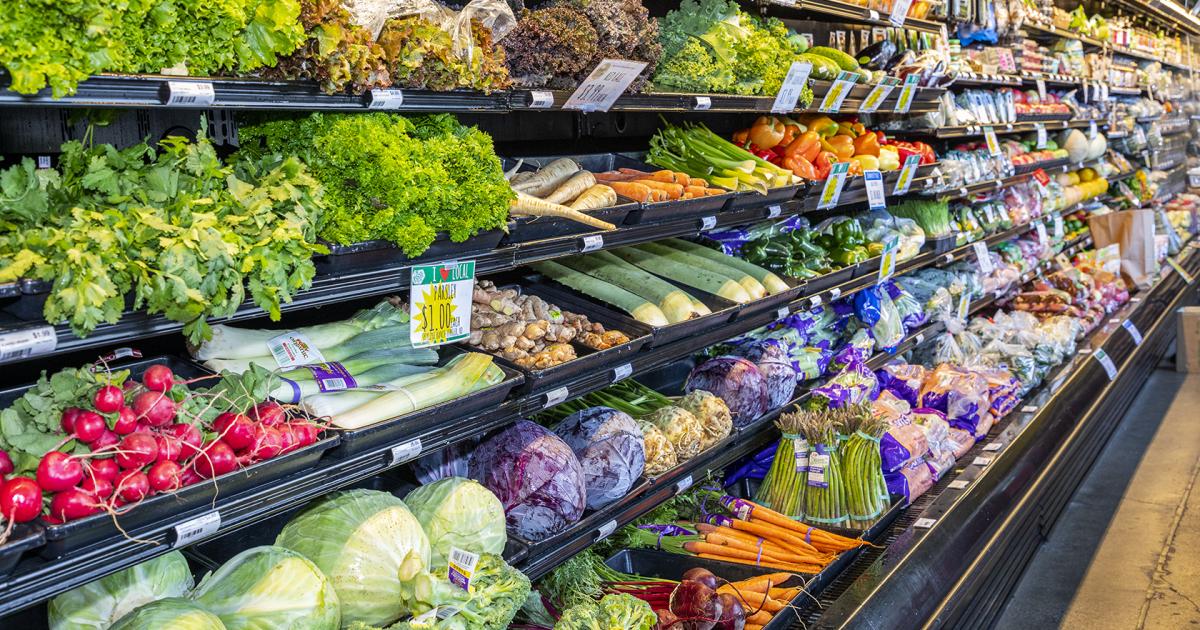Expanding on its efforts to improve rural food access, the North Dakota Rural Electric Cooperative Foundation is leading a feasibility study to explore the benefits of a nonprofit warehousing system.
“North Dakota is lacking in warehouse capacity, especially in rural areas. Warehouses tend to be one of the most ignored elements of infrastructure and logistics, but they are fundamentally important,” says Lori Capouch, rural development director, North Dakota Association of Rural Electric Cooperatives.
The project, which would serve a 75-mile radius around Minot, emerges as the number of rural grocery stores in the state continues to decline, amid the mounting hurdle to compete with big-box stores and large franchises.
“Our overall goal is to help rural businesses improve sales volume, attain lower wholesale prices and gain greater access to suppliers,” she says. “A successful warehousing system could enhance access to quality products and improve variety for people living in rural areas, and create a distribution channel for locally produced foods.”
Information gleaned from the study will be used to engage partners in the future development of a warehousing system. Anticipated partners include grocery stores, local food producers, food banks and other entities that purchase wholesale food.
“It’s gotten harder and harder for rural grocery stores to compete – pricewise, selection-wise, just everything. When delivering to rural areas, suppliers drive a lot of empty miles between towns, and it costs a lot of money. That expense is ultimately passed on to the rural grocers. If suppliers could drop off products at one location, it would be very helpful,” says John Dyste, president, North Dakota Grocers Association.
Local food producers could also benefit from the study.
Stephanie Blumhagen, chair of the North Dakota Local Food Development Alliance and executive director of the Foundation for Agricultural and Rural Resources, Management and Sustainability (FARRMS), believes a warehousing system could greatly improve access to fresh, local foods.
“The pandemic really showed us how vulnerable we are when we rely on external distributors for our food supply. It’s important for us to be able to grow food that can be consumed here. For that to happen, we need to have a local food system,” Blumhagen says.
A warehousing system would allow for aggregation of locally produced foods, she says, and could expand market opportunities for local producers.
“A farmer with a few acres may not be able to produce the quantity of produce that a school or a wholesaler might want, but 10 farmers of small acreage aggregating their production could achieve that quantity. And that's 10 farmers who have now been able to increase their sales, expand their businesses and give back to their communities,” she says.
Crossroads Community Advisors is conducting the study, which launched in April. Through Oct. 1, representatives will contact entities that purchase wholesale foods or produce local foods to gather information for the study. Information will be presented collectively, and individual data will remain confidential.
If the study finds a warehousing system feasible, a potential new funding source was approved earlier this year by the state Legislature. Senate Bill 2273 appropriated $1 million to the N.D. Department of Commerce to establish a rural grocery store sustainability and food access expansion pilot grant program and guidelines to award funding to preserve rural grocery stores or increase food access.
Entities that purchase wholesale foods and local food producers who wish to participate in the study can contact Neil Doty, Crossroads Community Advisors, 701-238-6169.
Krista Rausch is a communications specialist for the North Dakota Association of Rural Electric Cooperatives. She can be reached at krausch@ndarec.com.










